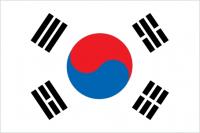City Water Index and associated resources to enhance urban water resilience, access and management
Economist Impact
(
Private sector
)
#SDGAction50578
Description
Economist Impact will further develop its City Water Index, looking to engage and prompt city level experts to further develop and strengthen the water system in their cities. We commit with this initiative to develop an updated version of the index, which will demonstrate rates and trajectories of change across city water systems and better inform practitioners, policy makers, off-takers, investors, and the public. Focusing on water availability, reliability and sustainability, the index will thus demonstrate how much cities have advanced in certain points, as well as how far there is still to go, and how to close the gap. We expect the City Water Index to become the premier tool for various stakeholders to understand and improve city water performance.
Facilitated by Economist Impact's reach, we are committed to making the City Water Index and the Self-Assessment Tool both serve as key blueprints for improving city level water systems and achieving more reliable and sustainable water access across the world. We will work with experts, city level officials, academics and the private sector to leverage the usefulness of these products. We expect that this will have a material impact on advancing SDG6 by enabling municipal water improvements worldwide.
Economist Impact has partnered with 52 major cities (Los Angeles, Paris, Copenhagen, São Paulo and Cairo, to list a few) across the globe to provide information and gauge the capacity, strength and sustainability of their water systems. Over the next year we commit to adding up to 15 additional cities. We also commit to hold additional workshops with the cities and their primary water stakeholders to use the index to improve performance, access, sustainability, and reliability of their water systems. So far, Economist Impact has held workshops in Cairo and Buenos Aires with local water experts, focusing on developing local water capacity, and we hope to further organize events like this.
All photos and links, plus data are included in the above website. Thank you!
SDGS & Targets
Goal 6
Ensure availability and sustainable management of water and sanitation for all
6.1
By 2030, achieve universal and equitable access to safe and affordable drinking water for all
6.1.1
Proportion of population using safely managed drinking water services
6.2
By 2030, achieve access to adequate and equitable sanitation and hygiene for all and end open defecation, paying special attention to the needs of women and girls and those in vulnerable situations
6.2.1
Proportion of population using (a) safely managed sanitation services and (b) a hand-washing facility with soap and water
6.3
By 2030, improve water quality by reducing pollution, eliminating dumping and minimizing release of hazardous chemicals and materials, halving the proportion of untreated wastewater and substantially increasing recycling and safe reuse globally
6.3.1
Proportion of domestic and industrial wastewater flows safely treated
6.3.2
Proportion of bodies of water with good ambient water quality
6.4
6.4.1
Change in water-use efficiency over time
6.4.2
Level of water stress: freshwater withdrawal as a proportion of available freshwater resources
6.5
By 2030, implement integrated water resources management at all levels, including through transboundary cooperation as appropriate
6.5.1
Degree of integrated water resources management
6.5.2
Proportion of transboundary basin area with an operational arrangement for water cooperation
6.6
6.6.1
Change in the extent of water-related ecosystems over time
6.a
6.a.1
Amount of water- and sanitation-related official development assistance that is part of a government-coordinated spending plan
6.b
Support and strengthen the participation of local communities in improving water and sanitation management
6.b.1
Proportion of local administrative units with established and operational policies and procedures for participation of local communities in water and sanitation management
SDG 14 targets covered
| Name | Description |
|---|
Deliverables & Timeline
Resources mobilized
Partnership Progress
Feedback
Action Network

Timeline
Entity
SDGs
Region
- Global
Other beneficiaries
With the expected Self Assessment Tool that will be released in the future, anyone (including the public) will be able to assess their city's performance across a number of indicators and compare with analyzed cities in the index, looking to understand what are the key developing points that still are needed in order to achieve a better water system. We expect this to increase informed advocacy for better water management and improved water access, reliability, and sustainability.
Countries
































Contact Information
Phillip, Global Head of Sustainability, Economist Impact

